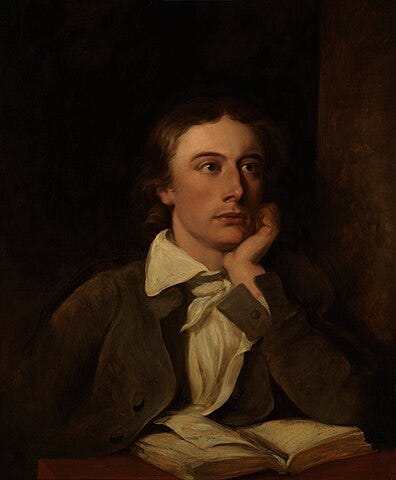I just finished reading Hyperion (1989), the first book of the Hyperion Cantos series, by Dan Simmons.
Hyperion is the name of an unfinished epic poem by John Keats (1795 – 1821), one of the greatest poets of the second generation of the English Romantic period. It was based on the fall of the Titans to the Olympians. Keats sort of continued his work in another unfinished poem, The Fall of Hyperion: A Dream.
The second installment in the Hyperion Cantos is also called The Fall of Hyperion and the events of the first two books are the subject of an epic poem written by the fictional author Martin Silenus.
The novel naturally made me think of John Keats and the use of AI to “recreate” dead historical figures (the book has character quite literally based on him).
The whole thing is mind blowing to me, but I get why some people would find it appealing.
I have no idea if we will ever reach the level of technology in Simmons’ science fiction universe or even if we should (I shudder to think what tech billionaires would do with it).
Regardless, I will keep on enjoying the words left behind by the human 19th century John Keats, who sounds like he both feared and accepted death.
When I have Fears That I May Cease to Be
When I have fears that I may cease to be
Before my pen has gleaned my teeming brain,
Before high-pilèd books, in charactery,
Hold like rich garners the full ripened grain;
When I behold, upon the night’s starred face,
Huge cloudy symbols of a high romance,
And think that I may never live to trace
Their shadows with the magic hand of chance;
And when I feel, fair creature of an hour,
That I shall never look upon thee more,
Never have relish in the faery power
Of unreflecting love—then on the shore
Of the wide world I stand alone, and think
Till love and fame to nothingness do sink.




